Read time: 6 minutes, 15 seconds.
Athletes in their 30s experience a gradual decline in physical performance and recovery. The body’s ability to produce energy declines, leading to decreased muscle mass, strength, and endurance. Recovery time also increases because healing takes longer. This makes it harder to maintain a high level of performance during intense training periods. This may require shorter training sessions, more rest days, and a more conservative training approach to avoid injury and burnout.
One significant difference between athletes in their 30s and athletes in their 20s is the increased risk of injury. As we age, the body becomes more susceptible to wear and tear, making it more vulnerable to injuries. 30-somethings are more likely to experience joint and muscle injuries. Especially if they have a history of high-intensity training or previous injuries. Despite these challenges, many athletes in their 30s are able to compete at the highest levels. These athletes prove that age is just a number when it comes to achieving athletic success.
Also Read: Hacking Age-Related Decline in Athletic Performance
The average age of athletes has also been increasing in recent years. A variety of lifestyle factors have helped athletes maintain their physical abilities for longer. There have been significant advances in sports science, nutrition, and recovery techniques. This allows athletes to be better equipped to manage training and maintain their bodies as they age.
Also Read: How exercise can help you stay young
Older athletes often choose healthier habits than their younger selves which prolongs athletic careers. These habits are allowing athletes to perform at high levels well into their 30s and beyond. Thus, breaking the traditional notion that athletic careers are over by the time athletes reach their mid-20s.
If you’re an athlete in your 30s, it’s the perfect time to start thinking about lifestyle changes to keep you in the game for many more years. Here are 8 anti-aging tips to help athletes in their 30s preserve their youth and continue to compete at a high level in their sport or activity.
1. Get enough GOOD sleep.
Getting enough good quality sleep is particularly important for athletes in their 30s, as it can impact their physical and mental performance. Sleep is essential for the body to repair and regenerate cells, and to help manage inflammation and cortisol levels, which can affect recovery and injury risk. These athletes require more sleep than their younger counterparts, as their bodies require more recovery time between workouts. Additionally, getting good quality sleep can help regulate mood and reduce stress, which can impact overall well-being and athletic performance.
Also Read: The Adult Athlete’s Guide to Restful and Restorative Sleep
Athletes in their 30s should aim to get 8-10 hours of sleep per night, establish a consistent sleep schedule, and create a sleep-conducive environment to optimize their sleep quality. This includes avoiding electronic devices before bed, keeping the bedroom cool and dark, and minimizing noise and distractions. By prioritizing good quality sleep, athletes improve their recovery, reduce injury risk, and perform at their best on and off the field.
2. Stay hydrated.
Staying hydrated is crucial for athletes of all ages, but it is particularly important for athletes in their 30s. These individuals may have a slower metabolism and a decreased ability to regulate their body temperature. Proper hydration is essential for maintaining healthy skin, muscles, and joints, and for delivering nutrients and oxygen to the body’s cells. It can also help regulate body temperature and prevent heat exhaustion, a common risk for athletes who train in hot and humid environments.
Also Read: 4 Easy Ways to Maintain Fluid and Electrolyte Balance
Athletes in their 30s should aim to drink at least 8-10 glasses of water per day, and increase their fluid intake during intense training periods or in hot weather. They can also incorporate hydrating foods and beverages, such as fruits and vegetables, electrolyte drinks, and coconut water, to help maintain their fluid balance.
3. Eat a healthy, balanced diet.
Eating a healthy balanced diet is essential for athletes in their 30s who want to perform at their best and maintain their physical abilities for as long as possible. A diet rich in whole, nutrient-dense foods can provide the body with the vitamins, minerals, and macronutrients it needs to fuel and recover from workouts. It can also help reduce inflammation, boost immunity, and support overall health and well-being.
Also Read: The role of nutrition in healthy aging
Aim to consume a variety of fruits, vegetables, whole grains, lean proteins, and healthy fats, and avoid processed and sugary foods. These can cause inflammation and impair recovery. 30+ athletes may also want consider working with an experienced sports nutritionist. A sports nutritionist can help athletes in their 30s create a personalized plan that addresses their individual needs and goals.
4. Incorporate strength training.
Strength training is a crucial component of any athlete’s training regimen, especially for those in their 30s who may experience a natural decline in muscle mass and strength. By incorporating regular strength training sessions into their routine, athletes can maintain and even increase their muscle mass, improve their bone density, and support their overall physical health and well-being. Strength training can also improve athletic performance by enhancing power, speed, and agility.
Also Read: How Exercise Can Help You Stay Young
Athletes in their 30s should aim to incorporate both compound and isolation exercises, targeting multiple muscle groups and joints, and use a variety of weights, resistance bands, and bodyweight exercises to challenge their muscles and prevent plateaus. They should also focus on proper form, gradually increasing the weight and intensity of their workouts, and allowing for proper recovery between sessions.
5. Improve mobility and flexibility.
Improving mobility and flexibility is important for athletes 30+ year olds who want to reduce their risk of injury and maintain their physical abilities. Regular stretching and mobility exercises can help increase joint range of motion, reduce muscle tension, and improve posture, balance, and coordination. It can also improve athletic performance by enhancing flexibility and mobility for specific sports movements, such as reaching overhead in volleyball or kicking in soccer.
Also Read: 10 Effective Core Exercises for Athletes
Athletes should aim to incorporate dynamic stretching and mobility exercises into their warm-up routine, and static stretching and foam rolling into their cool-down routine. They can also consider incorporating yoga or Pilates into their training regimen to further improve their flexibility and mobility.
6. Manage and reduce stress.
Managing stress is essential for athletes in their 30s who want to perform at their best and maintain their overall health and well-being. High levels of stress can negatively impact athletic performance by impairing focus, increasing fatigue, and disrupting sleep patterns. Chronic stress can also contribute to the development of chronic diseases, such as hypertension and diabetes. You can also check out “My Secret To Surviving Stress“.
Athletes should aim to incorporate stress management techniques, such as mindfulness meditation, deep breathing exercises, and yoga, into their training regimen to help manage stress levels. They can also prioritize self-care activities, such as getting adequate sleep, eating a healthy diet, and engaging in hobbies or activities they enjoy, to help reduce stress levels. It’s also important for athletes in their 30s to be aware of the signs and symptoms of burnout and seek support from a mental health professional if needed.
7. Limit alcohol consumption.
Alcohol consumption can have a negative impact on athletic performance and overall health, especially for athletes in their 30s who may be more susceptible to its effects. Alcohol can impair reaction time, coordination, and balance, which can increase the risk of injury during sports activities. It can also cause dehydration, disrupt sleep patterns, and impair recovery from workouts, which can negatively impact athletic performance.
Also Read: Unlocking Your Full Athletic Potential Through Mental Training
Additionally, excessive alcohol consumption can increase the risk of chronic diseases, such as liver disease and certain types of cancer. While moderate alcohol consumption may not have a significant impact on athletic performance or health, athletes in their 30s should be mindful of their alcohol intake and consider avoiding alcohol before or after workouts or sports competitions.
8. Listen to your body.
Listening to your body is an important practice for athletes in their 30s who want to stay healthy, avoid injury, and perform at their best. Paying attention to how your body feels during workouts and sports activities can help you identify any areas of pain, discomfort, or weakness, and adjust your training regimen accordingly. If you feel tired or sore, it may be a sign that you need to take a rest day or modify your workout intensity or duration. On the other hand, if you feel energized and strong, it may be an opportunity to push yourself to try a new exercise or increase your weights. By listening to your body, you can avoid overtraining, prevent injury, and optimize your athletic performance.
Athletes in their 30s should also prioritize recovery activities, such as stretching, foam rolling, and massage, to help reduce muscle soreness and promote overall health and well-being. By paying attention to your body’s signals and responding accordingly, athletes in their 30s can stay healthy, injury-free, and perform at their best.
In summary...
In conclusion, athletes in their 30s can maintain and even improve their athletic performance by implementing a combination of strategies that include getting enough good quality sleep, staying hydrated, eating a healthy balanced diet, engaging in strength training and mobility exercises, managing stress, and listening to their bodies. By adopting these healthy habits, athletes in their 30s can avoid injury, improve their recovery time, and enhance their overall health and well-being.
Whether you’re a competitive athlete or simply someone who wants to stay active and healthy in their 30s, incorporating these tips into your lifestyle can help you achieve your fitness goals and maintain your athletic performance well into your 40s and beyond.
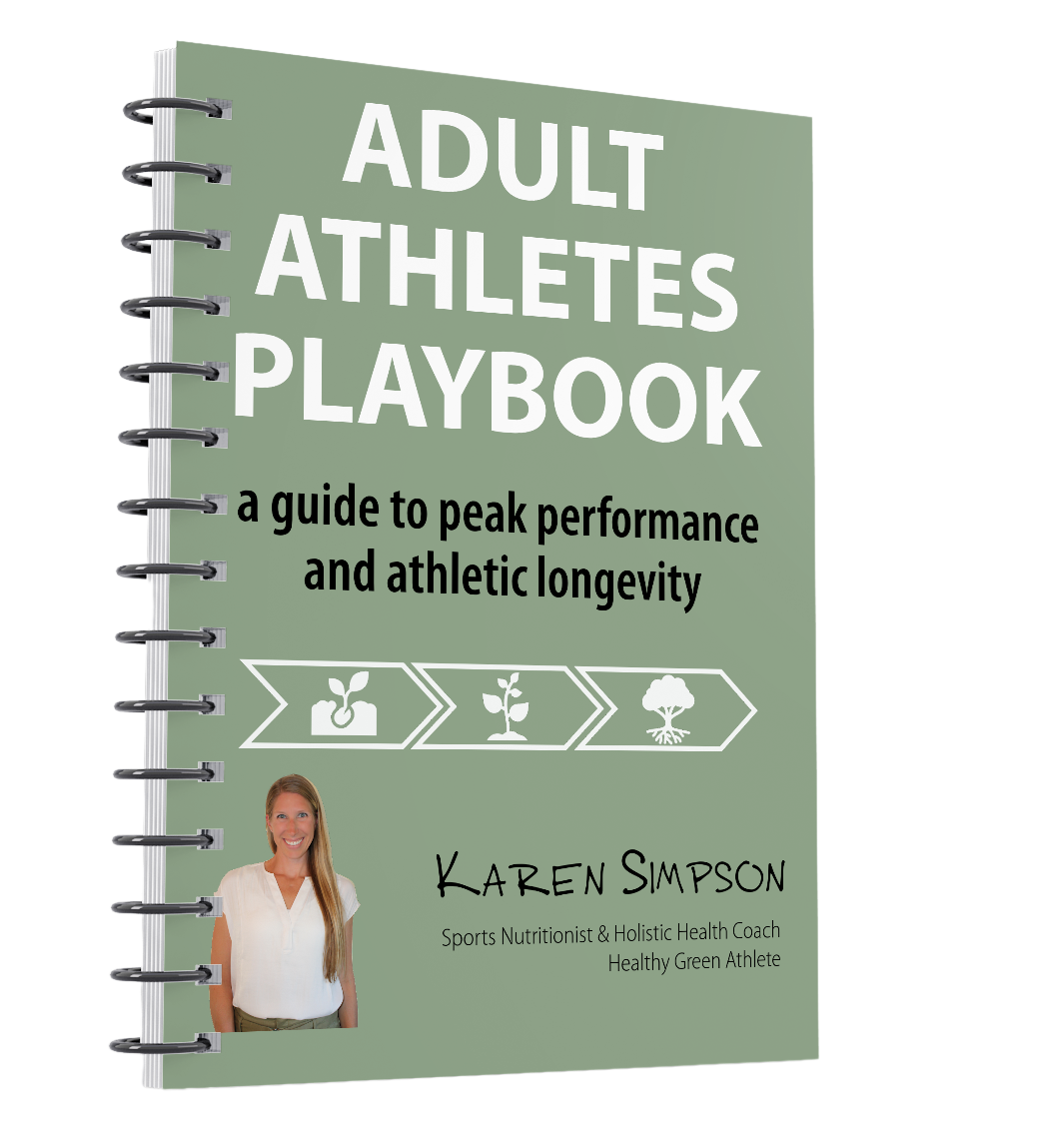
Adult Athletes Playbook
A Guide to Peak Performance and Athletic Longevity
This playbook will help you develop and implement a personalized game plan for improving athletic performance.
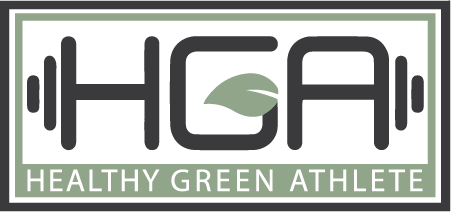
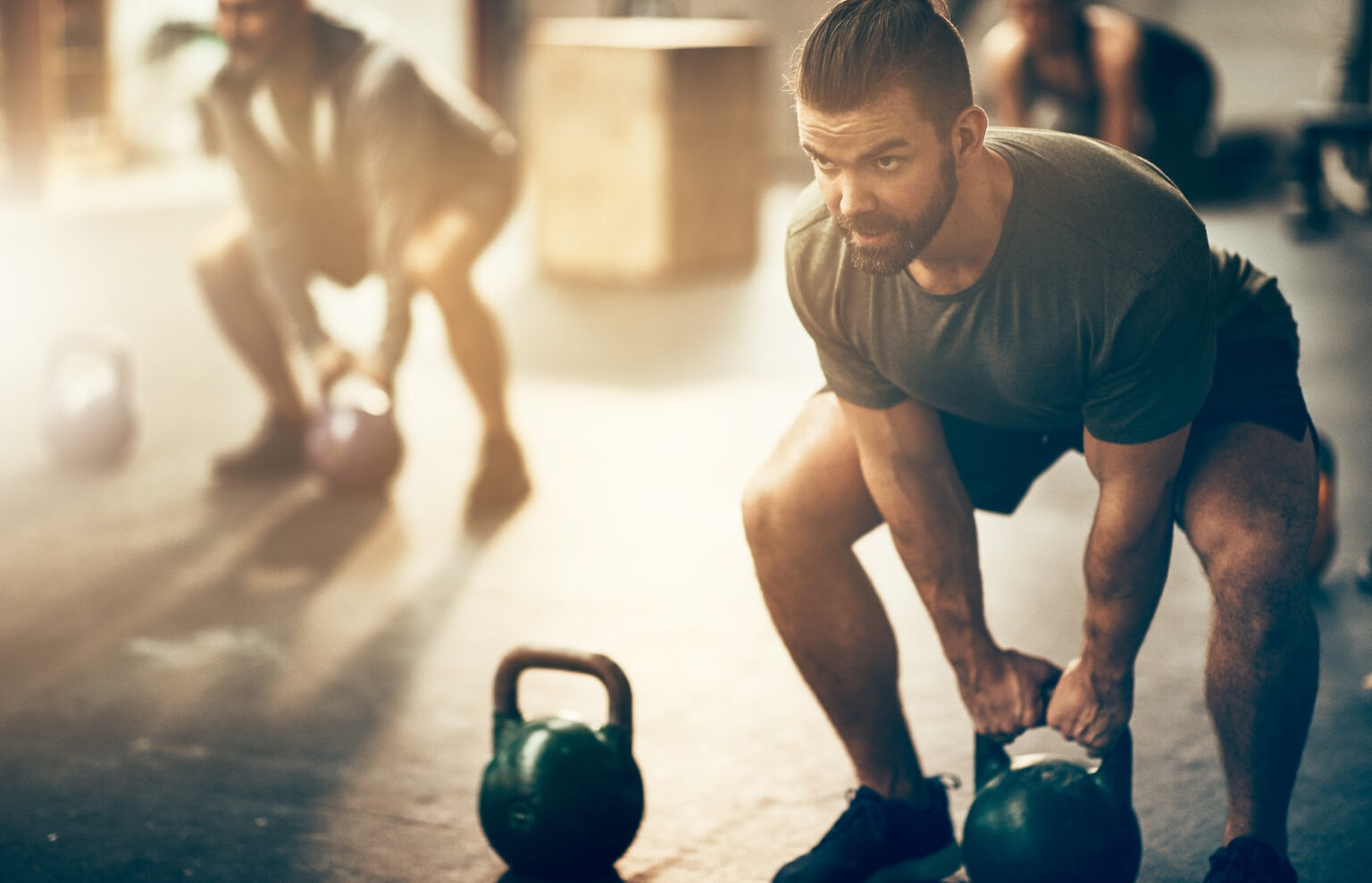
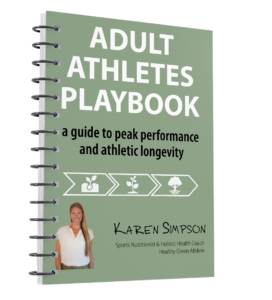

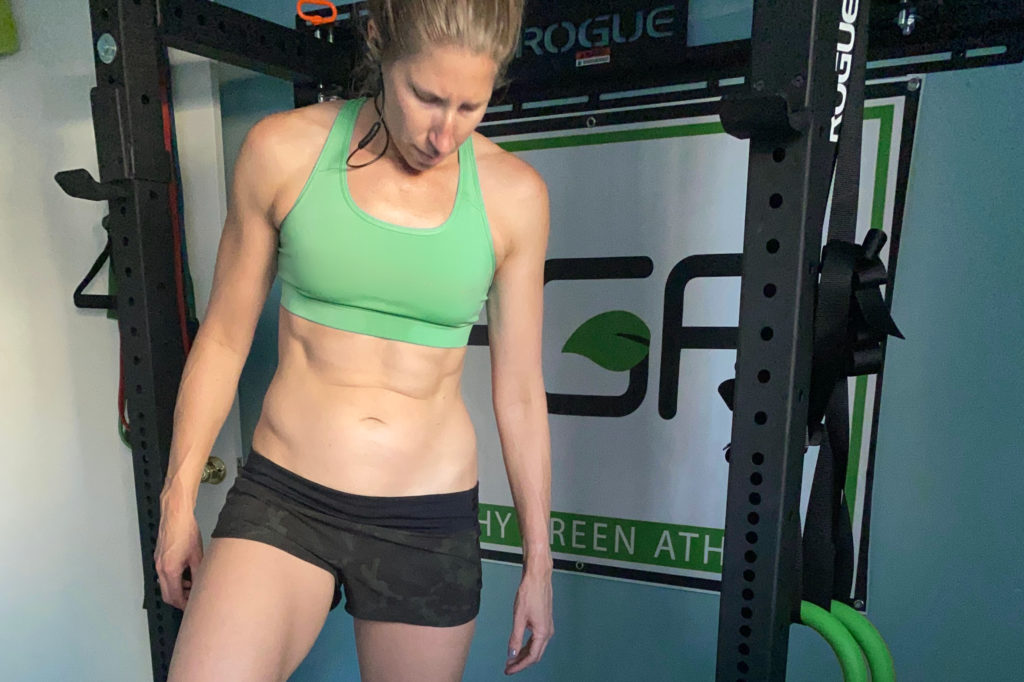

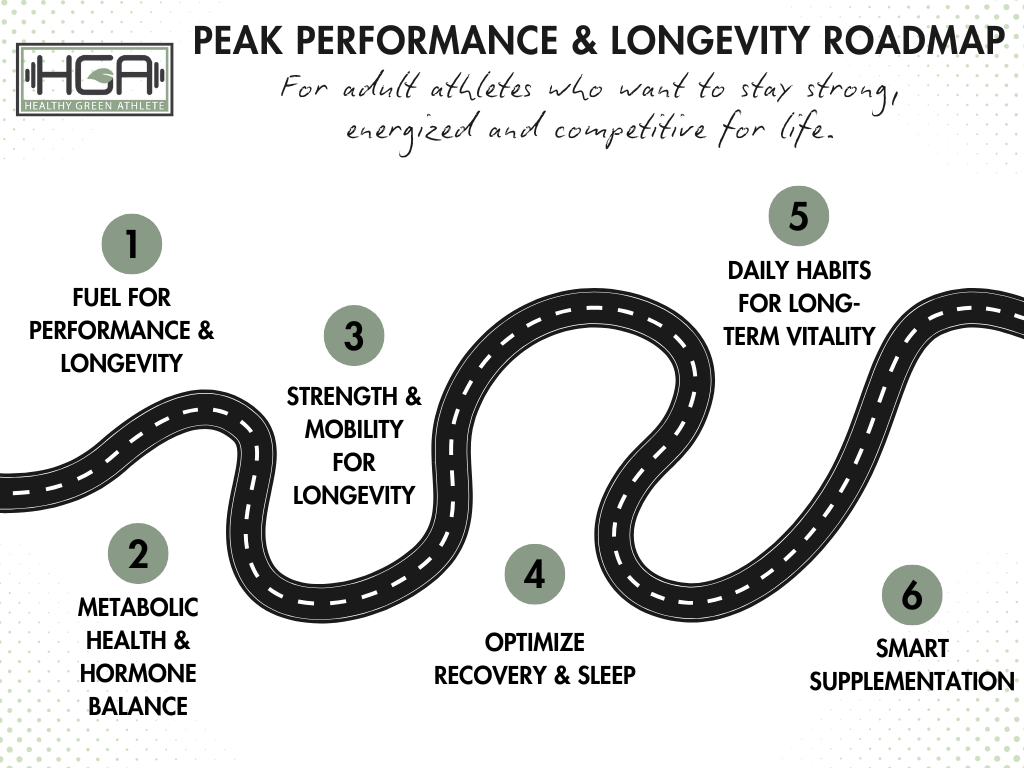



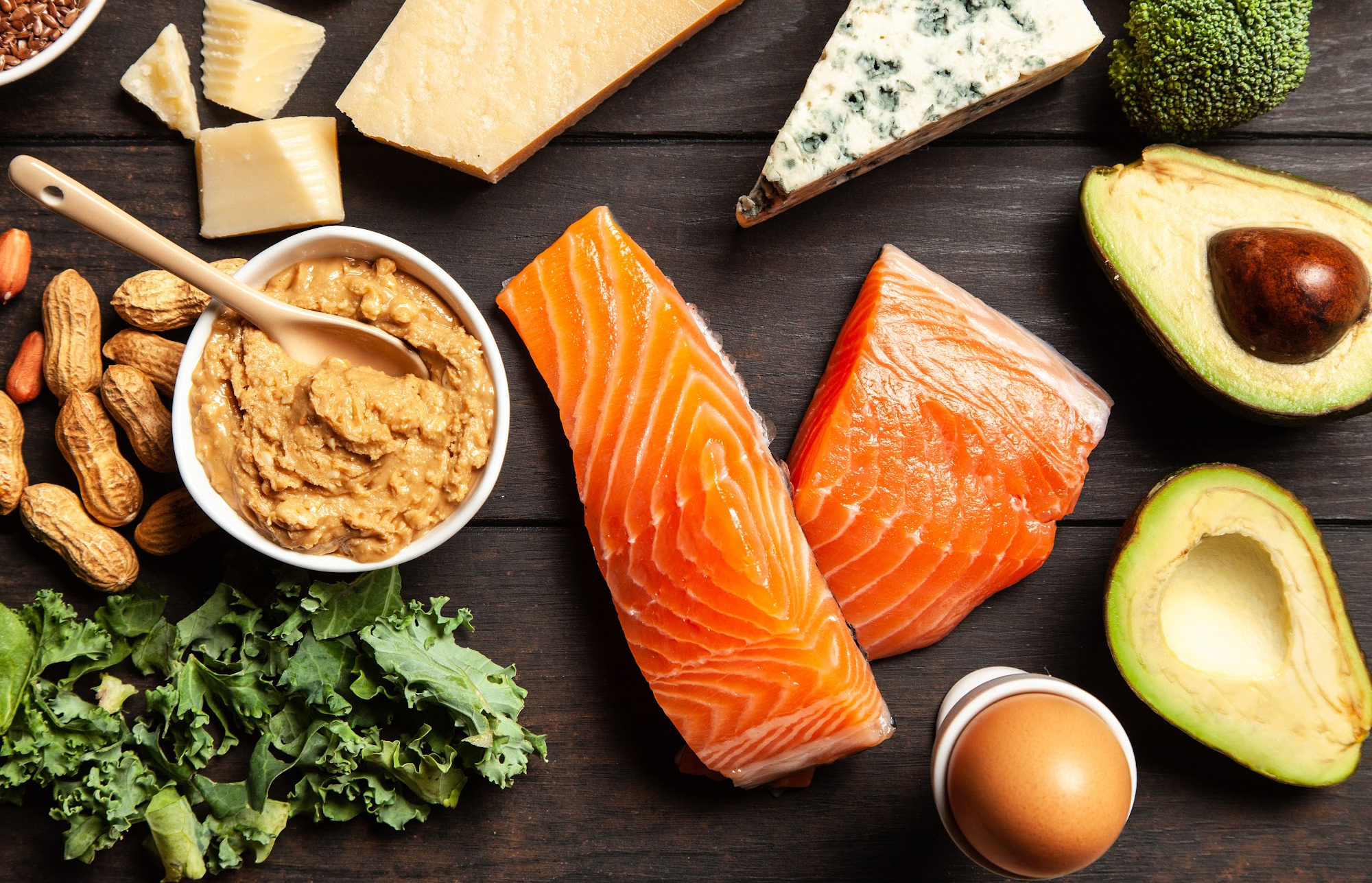
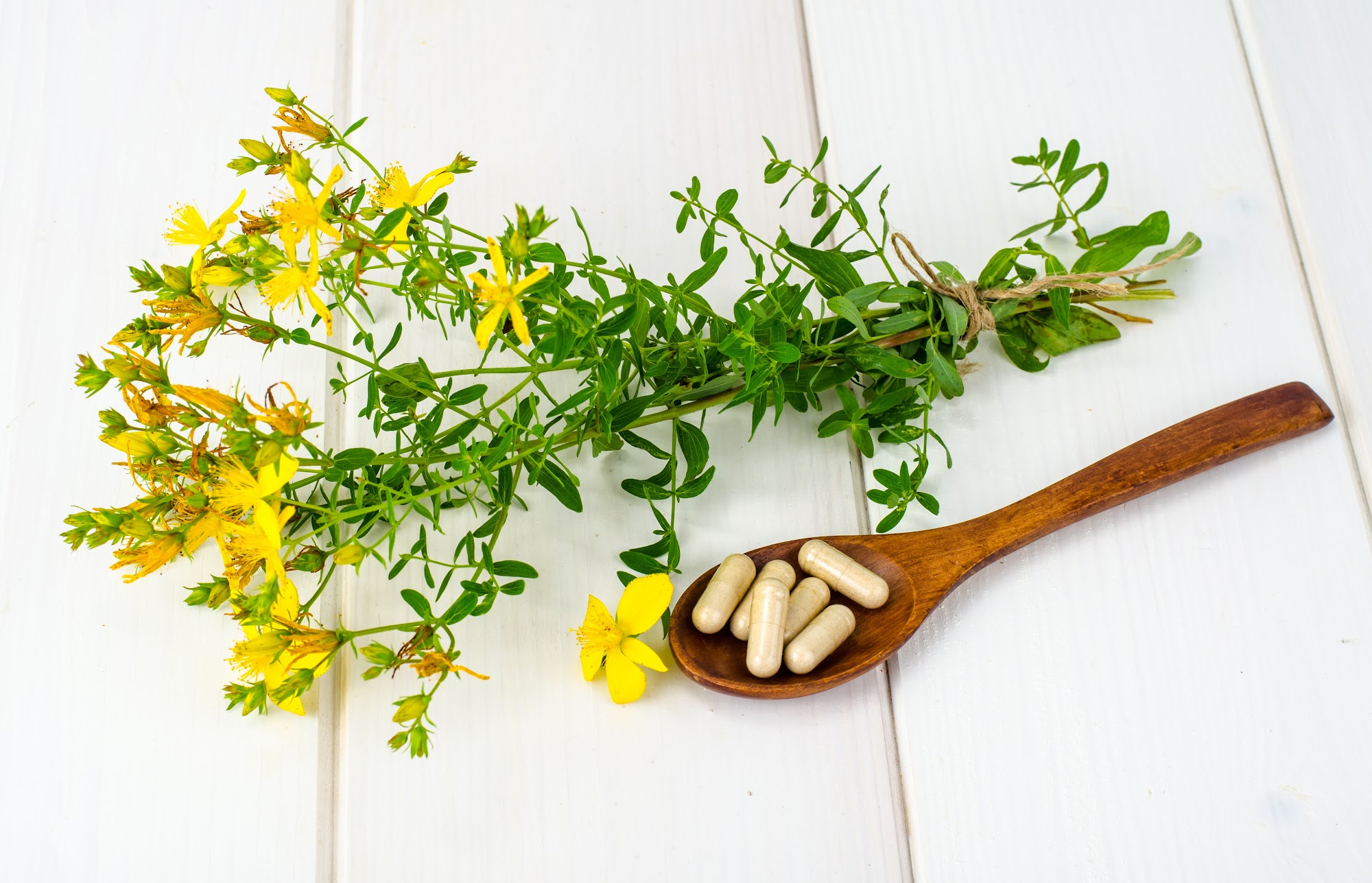
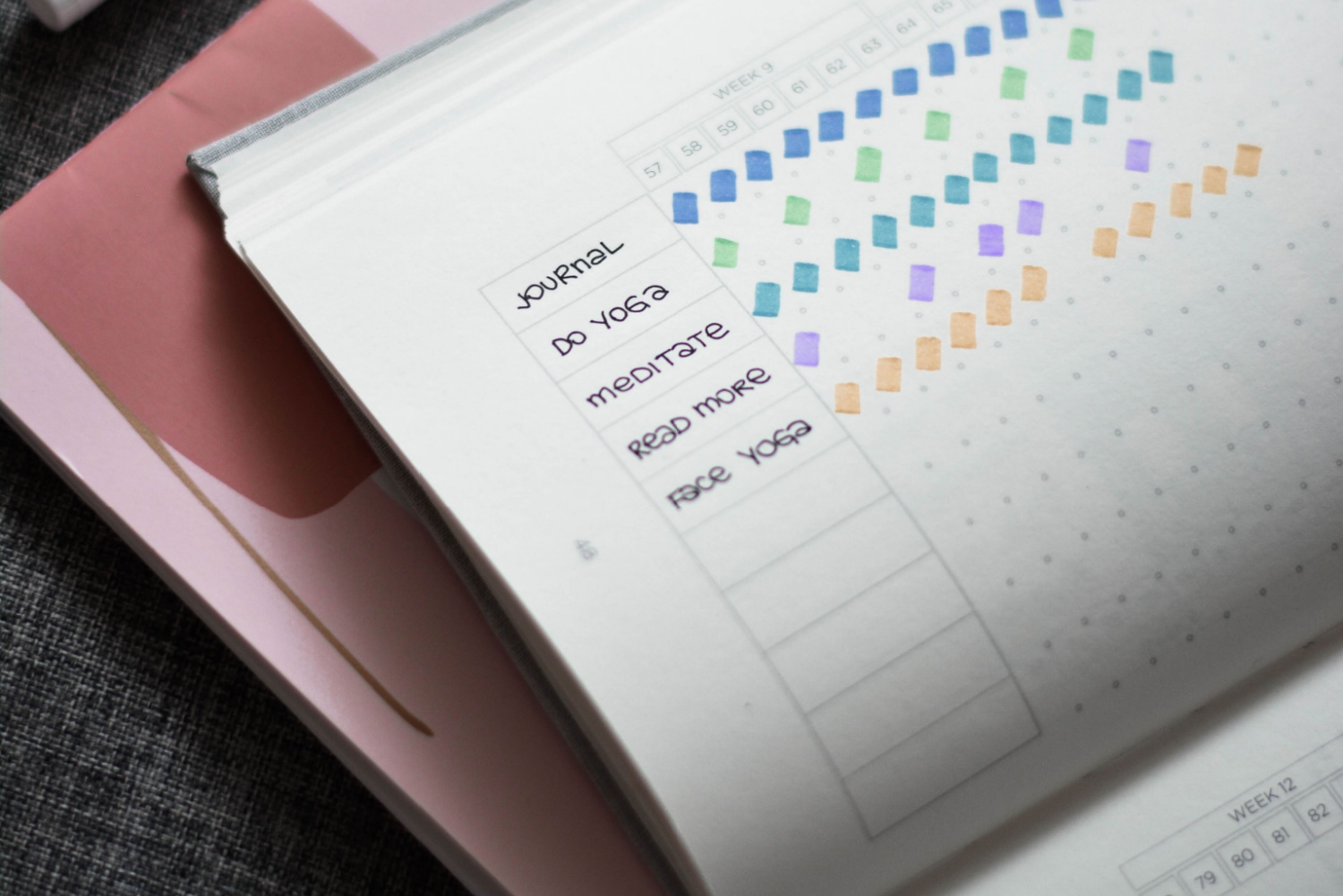
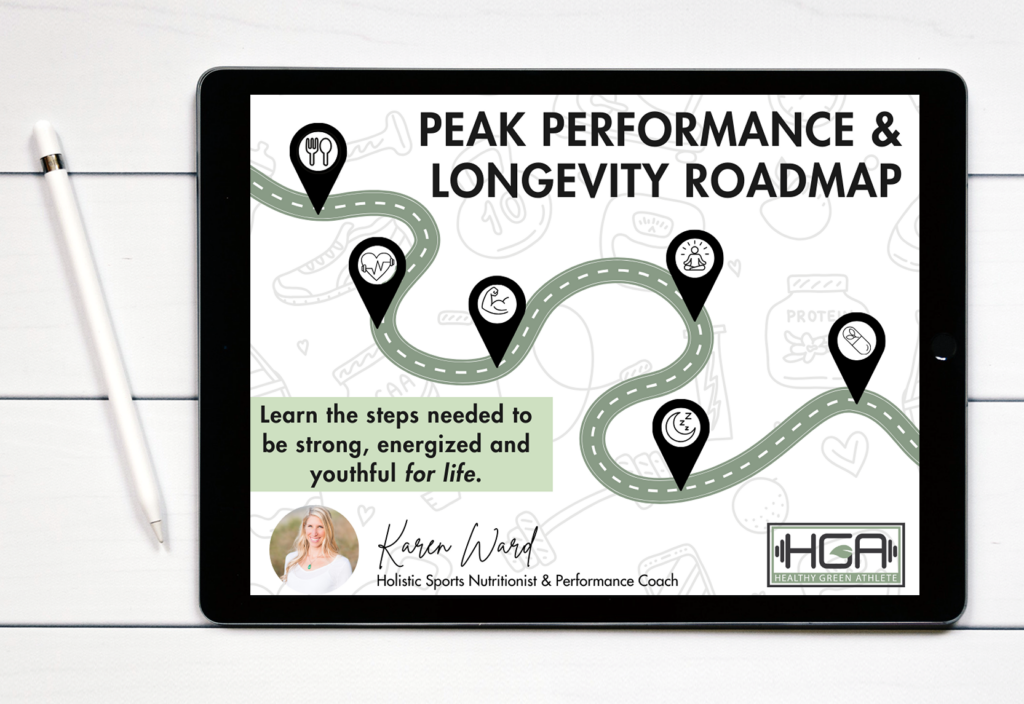
4 Comments
Pingback:
Pingback:
Pingback:
Pingback: